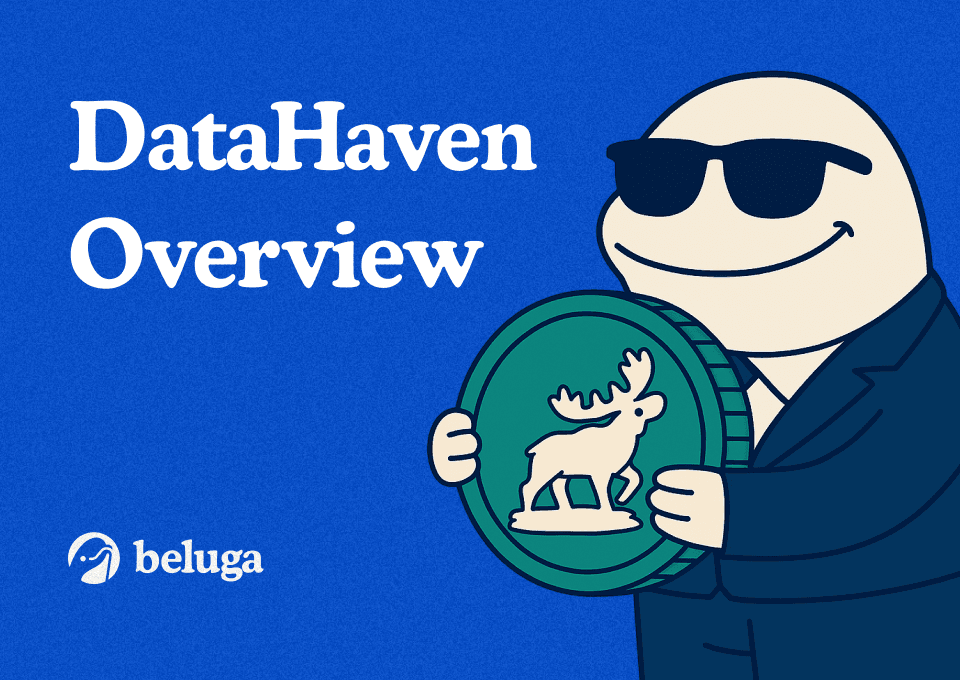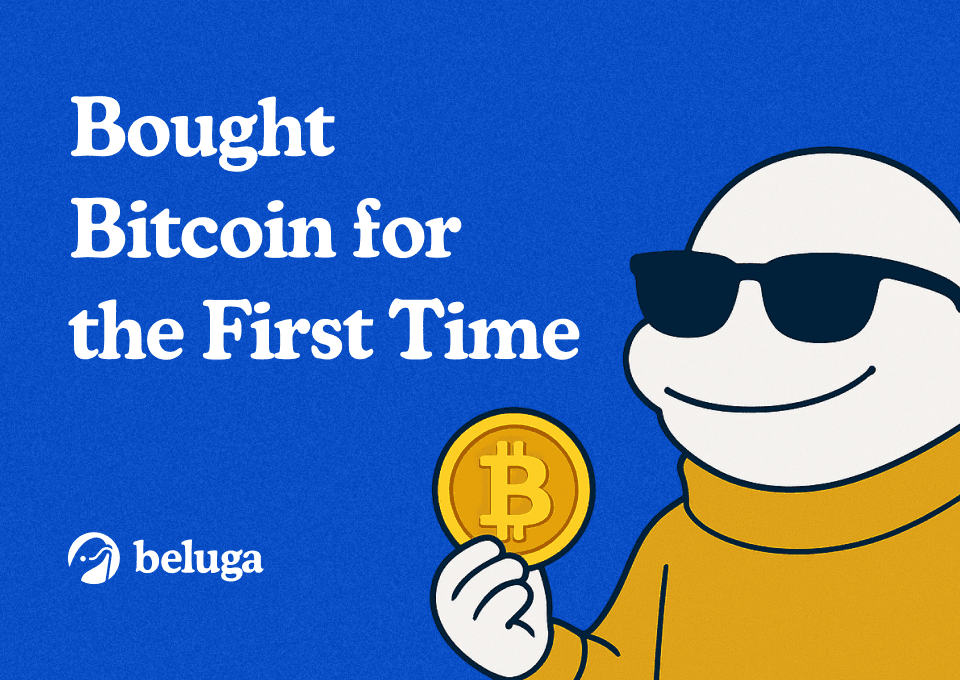“Fair Launch” Isn’t a Buzzword
By Alex DiNunzio, Head of Growth & Strategy, DataHaven Guest Writer Updated June 9, 2025

Summary
- At DataHaven, we made an intentional decision to allocate 50% of our token supply to the community.
- Fair launches tend to create more resilient communities because they minimize power imbalances, enabling a wider base of contributors.
“Fair Launch” Isn’t a Buzzword: It’s a Strategic Advantage
In an industry obsessed with speed, hype, and token price, “fair launch” is often dismissed as idealistic. But in a world where decentralized infrastructure competes not just on performance—but on trust—how a network is distributed is no longer a footnote. It’s the foundation.
At DataHaven, we made an intentional decision to allocate 50% of our token supply to the community. That’s not a marketing ploy. It’s a reflection of how we want this protocol to grow: with users, developers, researchers, and builders who are invested in the long-term future of verifiable, censorship-resistant storage—not just the next market cycle.
Too often, token distribution is treated as a closed-door negotiation: insider rounds, delayed emissions, steep cliffs, and an implicit assumption that the community can wait. But trust in a decentralized network doesn’t come from promises. It comes from provable ownership. Transparent distribution is a signal that the protocol values participation over patronage—and coordination over control.
And the results speak for themselves. Fairly launched projects may take longer to gain traction, but when they do, the foundations are stronger. The community is stickier. Governance participation is higher. Builders show up not just for funding, but because they believe in the mission.
We’re building DataHaven to support the next wave of autonomous agents, AI applications, and permissionless platforms. These systems demand more than just fast and affordable infrastructure—they require legitimacy, transparency, and trust. They need a foundation that ensures data is handled with integrity, where usage can be verified, and control doesn’t rest in the hands of a few. That means systems designed to empower, not extract. Systems that welcome participation and community, not gatekeep it.
That’s what “fair launch” means to us. And yes, it’s a term that gets thrown around a lot—but like decentralization itself, fairness exists on a spectrum. We’ve seen projects call themselves fair because they launched without a presale, but later revealed tokenomics that heavily favored insiders. Others make an honest attempt, but fall short on transparency or accessibility.
At DataHaven, we evaluate fairness not as a binary, but through a set of guiding principles: Is the community meaningfully included from day one? Is token access broad and transparent? Are governance and ownership distributed in practice—not just in theory? These indicators don’t just check boxes—they point to philosophical alignment. And for users and builders looking to participate in systems they can trust, that alignment matters.
Not a buzzword, but a long-term strategy for trust, resilience, and sustainable growth. Because in the end, networks win when the people who use them are the ones who own them.
Fairness Fuels the Flywheel
The benefits of this model go beyond ideology. They are tangible, measurable, and strategic. Fair launches tend to create more resilient communities because they minimize power imbalances. They enable a wider base of contributors, decision-makers, and evangelists. They create better alignment between protocol incentives and user behavior. And in an age where the credibility of decentralized networks is under increasing scrutiny, fairness is no longer just a nice-to-have — it’s a critical differentiator.
A common misconception is that fair launch means “slow launch.” That couldn’t be further from the truth. When executed well, fair launch strategies create early momentum by inviting real users—not just speculators—into the conversation. It gives people a reason to care, to contribute, and to build. And when those incentives are structured thoughtfully, they can generate far more durable growth than short-term marketing campaigns or token-gated hype.
The alternative is a model we’ve seen play out many times: high-velocity launches that generate massive initial interest, only to fall flat once early investors offload and incentives dry up. These projects often suffer from governance apathy, user churn, and the slow erosion of trust. In contrast, a fair launch sets a different tone from day one. It says: we’re here to build with you, not above you.
At DataHaven, that philosophy runs deep. We don’t just want users—we want stewards. People who help define the culture, improve the protocol, and keep us accountable. Fair distribution is what makes that possible. And it’s not just about percentages: it’s about transparency, clarity, and the willingness to distribute decision-making power.
Building for a Verifiable Future
Of course, fairness alone doesn’t guarantee success. It must be paired with execution. That’s why we’re investing heavily in usability, education, and dev experience. Our goal is to make decentralized storage not only accessible, but irresistible—because it’s the best option, not just the most principled one. We believe people will choose better systems when those systems are easy to use, economically sound, and aligned with their values.
This is particularly important in the context of AI. As autonomous agents grow more sophisticated, the infrastructure supporting them needs to be just as robust. These systems will rely on verifiable storage that is censorship-resistant, context-aware, and available 24/7 across borders. And that infrastructure needs to be governed by the many, not the few.
Looking ahead, we hope more projects embrace this mindset. Fair launch isn’t about being perfect. It’s about being intentional. It’s about designing systems that serve more than a few early insiders. And it’s about recognizing that sustainable protocols are built on participation, not permission.
So while others chase shortcuts, we’re playing the long game. Because fairness isn’t a compromise—it’s a competitive edge. And we believe the networks that win will be the ones that never lost sight of who they’re building for.
If you liked this article, follow DataHaven on X and join their Discord to make sure you don't miss an update!
As DataHaven’s Head of Growth & Strategy, Alex DiNunzio brings a proven track record of scaling operations and driving growth across multiple ventures. With deep expertise navigating complex business challenges, he excels in everything from boardroom strategy to daily execution. Career highlights include raising over $4M for Jambb before orchestrating a successful exit, being employee #1 at AssetBlock, a blockchain-based real estate investment platform, and helping Fuze, a leading SaaS communications company, scale from 17 to 700+ employees while leading product development. Despite living in Boston and holding an MBA from Harvard, Alex remains loyal to his hometown of Buffalo, and can often be found whispering the lyrics to the Bills' “Shout” to his four kids as they sleep, ensuring they don’t accidentally become Patriots fans.
Join the Beluga Brief
Dive deep into weekly insights, analysis, and strategies tailored to you, empowering you to navigate the volatile crypto markets with confidence.
Never be the last to know
and follow us on X








